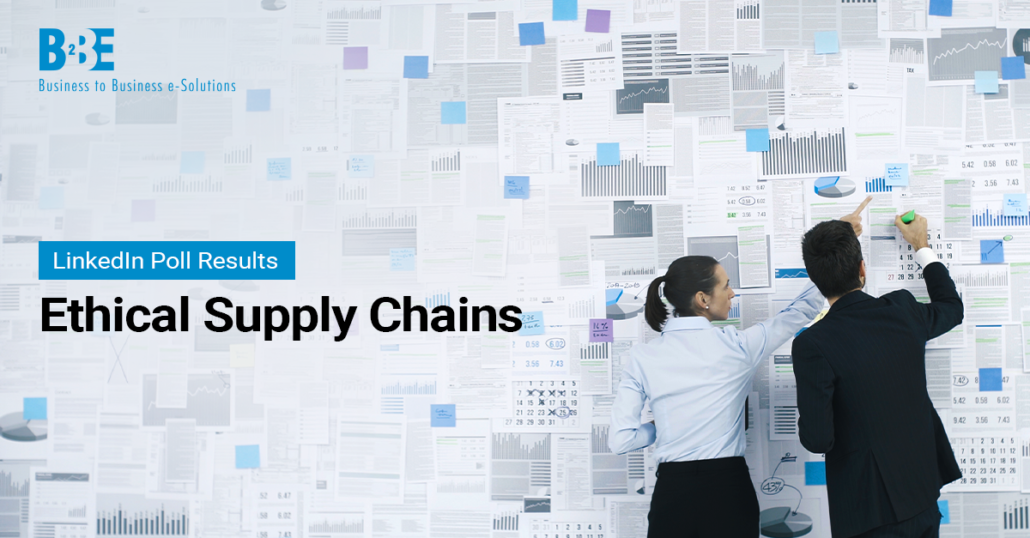The importance of ethical practices within supply chains has become an increasingly relevant topic in today’s business world. Socially responsible consumers are now demanding greater transparency and accountability. By understanding the relevance of ethical practices, companies can not only meet consumer demands but also create a more sustainable and resilient supply chain. So, let’s understand more on the topic. Read below to discover why an ethical supply chain is essential for modern businesses, using results from our recent poll.
Poll results
In our most recent LinkedIn poll, we asked our social media followers: how important is an ethical supply chain?
Ethical supply chain: what we found
Extremely important
78% of respondents selected ‘extremely important’. This is fantastic news for businesses that prioritise ethical practices. It indicates that the majority of consumers are aware of the importance of transparency and accountability within the supply chain. By focusing on ethical practices, businesses can not only meet consumer demands but also enhance their brand reputation and create long-term sustainability. With such a high percentage of respondents recognising the significance of ethical supply chains, it is clear that businesses must prioritise ethical practices if they want to succeed in today’s socially conscious marketplace.
Quite important
17% of respondents selected ‘quite important’. While this number may not be as high as the 78% of respondents who chose ‘extremely important’, it is still a significant proportion of the sample size. This indicates that there is a growing awareness among consumers of the importance of ethical practices within the supply chain, even if they do not prioritise it as highly as others. For businesses, this presents an opportunity to educate consumers on the value of ethical practices. As well as the positive impact they can have on the environment, society, and the economy. By doing so, businesses can not only increase consumer trust but also differentiate themselves from competitors who may not prioritise ethical practices. While ‘quite important’ may not be as ideal as ‘extremely important’, it is still a positive sign for businesses that are committed to ethical supply chains.
Somewhat important
4% of respondents selected ‘somewhat important’. While this number may seem small, it still represents a portion of consumers who recognise the importance of ethical practices within the supply chain. For businesses, this presents an opportunity to engage with these consumers and educate them on the benefits of ethical practices. By doing so, businesses can increase awareness and understanding of the importance of ethical supply chains. They can also potentially shift the opinions of those who may not prioritise it as highly. While 4% may not be a large proportion, it is still a positive sign for businesses that are committed to ethical practices and are looking to engage with a broader audience.
Less important
0% of respondents selected ‘less important’. This result indicates that all participants recognise the importance of an ethical supply chain. This is great news as it demonstrates a growing awareness and demand for transparency and accountability in today’s marketplace. By focusing on ethical practices, businesses can not only meet consumer demands but also enhance their brand reputation and sustainability. 0% of respondents selecting ‘less important’ underscores the need to prioritise ethical practices to succeed in today’s socially conscious environment.
More information
B2BE’s experience in the supply chain sector allows our customers to build, expand and adapt successfully, enabling greater effectiveness. To engage with B2BE and offer feedback on what matters most to you and your business, make sure to follow us on LinkedIn and across social media. You can also vote in our latest LinkedIn poll. If you’d like to discuss your future supply chain strategy, get in touch with us.
